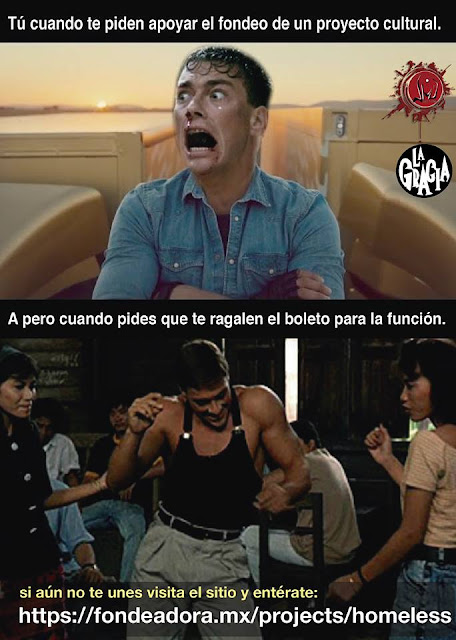Corrections are welcome!!!! And
needed for sure!
La versión en español está una publicación abajo!
Last weekend I was at the beach
with some friends, all of them modern parents, and they started talking about
the questions their sons are making to them about life and surrounding, of
course they talk about swearwords. We believe that saying or not swearwords is
a moral decision, and generally we answer to children that they can say it at
home but never at school, or on front of their grandpa. The truth is that swearwords
are over a moral conflict, they represent a conflict about linguistic and
cognitive development, not only for kids, also for their parents and other
adults who say them.
All languages have swearwords and
synonyms, ¿where is relation? I don’t really know the use of swearwords in
English but I’ll try to explain the point with Spanish translation. In Spanish
we have many, a lot of words to call a person who is presumptuous, same as in
English, pretentious, conceited, overweening, and much more, but we must say
that any synonym is identical, we don’t say that a fly expire or go out, right?
Unless we are joking, expire, go out, die, are synonyms but are not used the
same way. With presumptuous and it’s synonyms is the same, are not really for
the same kind of person, every synonym has it own little dissimilar meaning,
so, in Spanish we have a swearword that reduce all of them, “mamón” that means
“suker” or “mammon”, means a little child who can’t do any thing but cry and
get feed by his mom breast. The problem is that this swearword replace all the
others and the others acute differences. Is the same with other swearwords,
replace many other words.
This can seems harmless, but the
fact of get the brain watchful about the words we need or will be needed to
describe or explain some situations, is a very important skill on a cognitive
level, even for an adult, lets remember that our body is a machine that if is
not used gets rust. So, when this skills are requested to a child, their
function gets more important, because childhood is the age when the first and
more important brain functions are getting developed thanks to the requires and
challenges he is exposed. If a kid learns to identify the persons who are
presumptuous as the same as someone who is conceited or overweening, and get
them all in one only word as “suker”, then its brain is not going to get
powerful. A kid who ask his parent if Tony Stark is presumptuous or smug, and
listen back “better boastfully”, making his vocabulary richest, is not going to
grow the same as a kid who say that Ironman is a “suker”.
And of course, linguistics is not
only about just language, is also about psychological development. The problems
solutions are also learned since childhood. If a kid get used to solve its problems
saying “fuck your self”, is very probable that he will never concentrate on
make a retrospection about what happened about that problem, where it comes
from, he will not get into his feelings or sensations. The words are not only
tools to call thinks, furniture or food, words really helps on self-communion,
and world communion, that is why is very important to think over act, even when
you’re angry. Here some exercises that are going to help even adults.
Imagine a woman who is suffering
an amygdale kidnapping (the amygdale is the brain part that acts only with
instinct “attack-run”), furious with her husband because he forgot the
anniversary, she start to shout him “you are an idiot! Damned!” What happens
next is a very common drama. Now imagine the big difference that can make if
she listen her prefrontal cortex (the part of the brain that reason), she get
calm and say: “When you forget our anniversary makes me feel you don’t care
about me at all.” Of course it sounds a cold reaction, more for Latin-Americans,
but to be honest is very obvious which situation is closer to solve the problem
and which is going to make it worst. Now, talking about kids is more important,
because they will learn to be more or less aggressive, to solve or to make
worst the problems. Much more, imagine that you see your kid very sad, you get
close and ask him what is happening, you don’t want to listen “I’m fucked”, you
need more information right? So be analytic with their own feelings can help
them to solve issues. Top down I leave a Harvard University
For all this reasons is necessary
to educate and give children a very extensive vocabulary, that will not only
help to develop his brain connections, will also help to make more rational
their reactions, to reflex about the surrounding and to give a name to their
feelings. So when your kid asks you why he can’t say swearwords, you can answer
easily and tell him that his brain is not going to develop right if he/she
reduce everything on one only word that is also aggressive. Of course you also
need to leave him to talk as he/she wants with his/her friends, is important to
his/her personality and social relations, and more, is important that he/she
learn to choose different language on different places.
Harvard research:
More
about chid development:
ps://www.scribd.com/doc/142402378/CHOMSKY-DEL-DESARROLLO-DEL-LENGUAJE-EN-LOS-NINOS-pdf">https://www.scribd.com/doc/142402378/CHOMSKY-DEL-DESARROLLO-DEL-LENGUAJE-EN-LOS-NINOS-pdf

